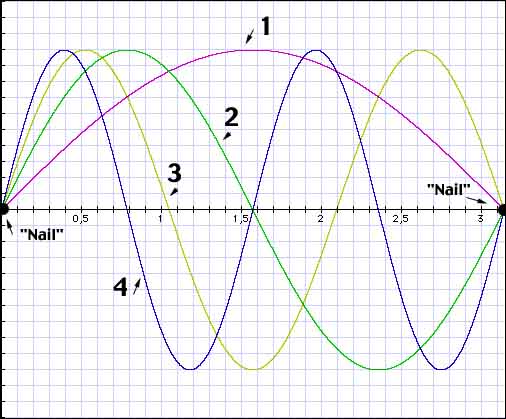|
We’re all experiencing cycles—all the time, all the time—but lately they seem to carry especially complex patterns of overlapping troughs and apexes, with some dramatic amplitudes. Here is something I told a friend in an email the other day: “I’m having a hard time marshaling a long-term vision for myself as a musician right now, which is something I could always count on over the last 5-6 years, even when the specifics were (quite) hazy.”
To make sense of the present we look for hints of the future, for secret threads connecting things, for invisible resonances barely heard. Quoth Matthew McConaughey’s character in True Detective, “She articulated a personal vision. Vision is meaning. Meaning is historical.” I’m not sure what that means, if anything, but let’s hazard an analysis: Vision is the ability, or the proclivity, to see patterns and connect information—even if the patterns don’t really exist outside your personal imagination. In this sense vision is related to, perhaps inextricable from, some notion of faith. Meaning is also about connection, the connection of events to other events. Meaning is about believing in narratives: after all, you can’t tell a story without one thing leading to another. History is, of course, the connection of events in succession, is about seeing correlations and positing causal relationships among them. So maybe vision is the desire, the struggle, the attempt to situate ourselves historically. It’s not about literally believing your music is going to be in the history books. All that’s required is the sense of a connection between your work and the music that IS in the history books, and the belief that your work may open a way to the music of the future—even if it’s only your personal future and no one else’s. Ned Rorem said (and I’ve been quoting this since my first round of grad school admissions essays): “I compose just from necessity, and no one else is making what I need.” The idea is, there’s this thing you want to hear. You can almost see it, sometimes. But you don’t totally know what it’s going to sound like. Not until you try to write it down. For this reason, the most exciting thing in the world is when you catch some glimpse of your ideal music like a flash in the corner of your eye. I’ve had this revelation over and over again, in small hints and breathtaking waves: doing theater as a kid; hearing for the first time Miles Davis, Mississippi John Hurt, the Cavatina from Beethoven opus 130, Morton Feldman’s Piano and String Quartet; cliff diving into the Colorado River, climbing my first fourteener, standing in a New Mexico ponderosa forest at midnight and hearing the wind in the trees and the horn of a distant train. Just the other day I saw or heard a few shreds of it, whatever it is. It’s always just fragments, but these are the reminders that allow us to keep working. I was working on a piece of music, entering notes from a pencil draft into Sibelius. I was listening to Danny Fisher-Lochhead’s album On Ceremony. And then I clicked through his record label, Fishkill Records, to another recent album, Arktikos by Ross Gallagher. These albums were both inspiring in the way I’ve described, dropping hints of what I’m looking for in the piece I’ve been writing. Actually the two are in some ways in opposition, as they relate to my project. Danny’s album exemplifies the big beautiful mess theory of which I am an enthusiast. It’s sprawling, oblique, mysterious. The band is called “Danny Fisher-Lochhead Large Ensemble,” which implies genre indeterminacy as well as a possibly democratic sense of pluralism and participation. Arktikos, on the other hand, is terse, focused, and simple—a probably contradictory ideal I’ve also expressed in my own music. Question: are these values actually contradictory? I’m reminded of the notion, which I wrote about in 2013, about certain musicians or pieces or recordings as “keys to the church.” Speaking of musicians in honor of whom churches were literally later established, I really encourage everyone this week to listen to some Coltrane. It seems to help.
0 Comments
All those curious are advised to read the latest edition of my email newsletter, Sonatas and Interludes.
|
A Selection• Gone Walkabout
• Migration • Music as Drama • Crossroads II • 10 Best of 2014 • January: Wyoming and the Open • February: New Mexico and the Holes • Coming Up • Notes on The Accounts • Crossroad Blues • Labyrinths Archives
October 2020
|

 RSS Feed
RSS Feed